ADSactly Life: And you: How would you like to die?

And you: How would you like to die?

Hello, @adsactly readers
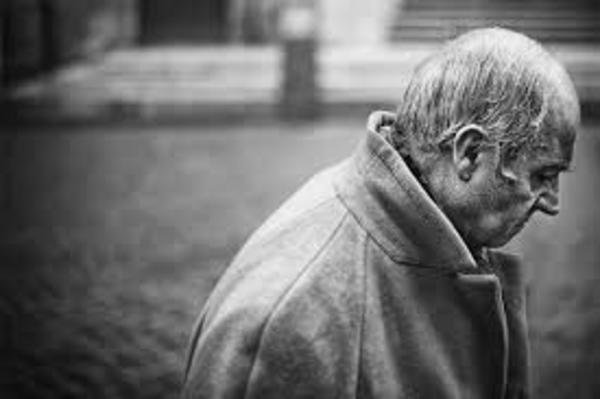
When we are born and as we grow, maturing, we understand that the only sure thing we have is death. She doesn't need arguments, evidence. Death is proof, a consequence of having been alive. Death as that imminent, unavoidable end. And as we live, I don't know if they are my things, we get attached, fond of what we call life and the idea of dying, perhaps because it is closer and more threatening, is a shadow to which we turn our backs and from which we even take away our greetings. I don't know, but we don't like to talk about death, maybe because if we talk about it we might think we're calling it. I have to recognize that I value those people who maintain a cordial relationship with her; her state speaks of a human elevation different from the normal one, the common one. A friend of mine would say: they are from another heaven.
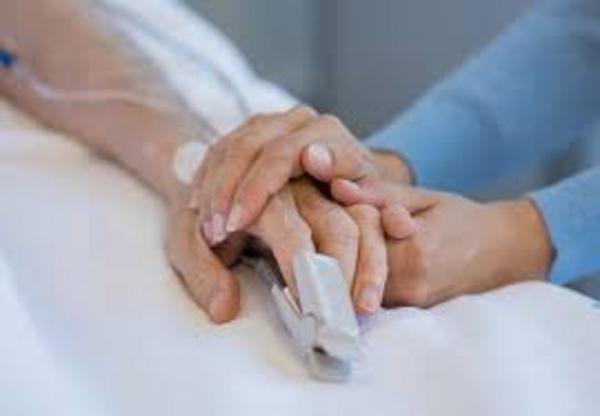
Rereading the lines of Barrera Tyska's novel, I came across that "alcabala" called disease that some people suffer before dying. And it seems that we are all on this path, towards death, but there are some who remain as at the entrance, who cannot cross this threshold because they lack something, a role, one more suffering. In short, to pay a sin that for bureaucratic reasons was not paid at the time and you must pay it off before leaving; and it is then that person is forced to stay in a painful area, visible and sometimes for a long time waiting for that moment that should be more expeditious, easier. Simply put, death should be kinder.
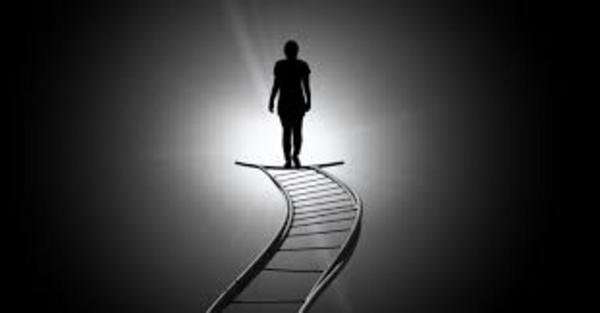
As I write, my father's last days come. He bore his kidney disease for 12 years as a hero: in silence and with a gallantry of cured Indian. Shameful, inhumane examinations and treatment, which not only wounded his old age skin, but his dignity, were endured with unutterable pain and grief that only a 65-year-old man can have. But he never complained, never shed a tear, never. One day, as the novel says, it dawned little by little, we used to say in my house, and from that dwarfed corner he never left, or did not want to leave. The illness, like a boxing match, had taken him to a corner and blow after blow, had made him stagger. The disease is a terrible opponent, that gives you no truce, that doesn't know the rules of life and those of boxing: the one that says you can't keep hitting the "man who's already fallen" because he's cruel and inhuman.
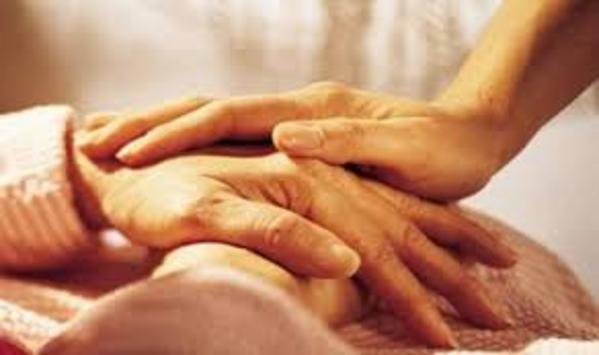
When father was first told he was sick, or "very sick," he went to war with God, with the world, with life. Why me? It was the question to the great omniscient. Love, care, hope and seeing that at his age life had taken a wrong account of him and was rather "paying" little for all the excesses he had committed, led him to a process of reconciliation, acceptance and with this, improvement. My father was not a negative or pessimistic man, on the contrary; but one October he woke up as if he had already decided to leave, had already paid everything and that pass to death was ready. That would be his last rounds. The disease had won.
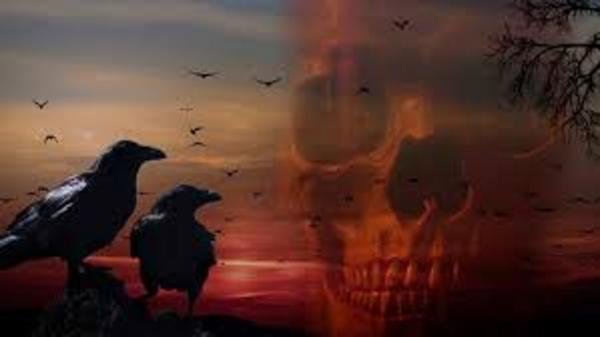
Susan Sontang in The Disease and its Metaphors (1981), another book that I also "found" these days and that I also recommend, says that the person dies when he decides to die. So much truth thrown in the face can be considered an offense. Especially for those of us who are stranded in this season called life, trying to postpone that sad farewell to the handkerchiefs, that definitive farewell. At that moment we do not believe that the decision to die should be made by the patient and we do the impossible, despite our loved one, to keep him alive, to have his body even though his organs are functioning artificially. We become selfish beings that we desire, we beg a God until that moment absent for us, that although useless, prostrated in a bed, our relatives continue with life, although the sorrow and the sadness annihilate them later. We weep, we weep much at the end, but our weeping, though we think it is, is not for the person who goes away, but for us who stay. Death is not the pain of the sick; on the contrary, it is their rest. Death is pain for us, those who suffer the loss, those who do not find ourselves without the loved one.

As we read the last lines of the novel Sickness, two illuminating certainties come to us. The first, many of the things we do with our sick, we do for ourselves; not for them. Spending his last days alone in a cold intensive care room, receiving minutes of life that only lengthen suffering, is not the desired end of any human being. And the other thing is that when we close the book, we think that before we are born, someone, God perhaps, should ask us how we would like to die. Surely many of us would say: give me death fast and fulminant, please!
I hope you enjoyed the reading. I invite you to vote for @adsactly as a witness and join our server in discord. Until the next smile. ;)

BIBLIOGRAPHICAL REFERENCE
http://gumilla.org/biblioteca/bases/biblo/texto/SIC2007691_40-42.pdf
Alberto Barrera T. (2006). La enfermedad. Anagrama: España
https://revistareplicante.com/la-enfermedad-y-sus-metaforas/
Susan Sontag (2003). La enfermedad y sus metáforas. Taurus: Argentina
Written by: @nancybriti
Click the coin below to join our Discord Server
)
A very moving reflection text, @nancybriti. I believe that the fear of death is inevitable, although the ideal would be to make itself inexorable. I remember Unamuno who, in an essay, says "we cannot conceive of ourselves as not existing". In me, death has been the object of thinking for a long time, perhaps because from a very young age I witnessed its imminence or consummation (when I was an altar boy and accompanied the priest to extreme unction or to the office of the deceased) or because I lost loved ones several years ago.
You bring for consideration two revealing books: the beautiful novel by Barrera Tyszka and the book of essays by Sontag, of which I also share the recommendation. The poet Rilke said that it was necessary to do in us "our own death"; difficult to understand (it has nothing to do with suicide), perhaps it is that conscience that we must go making of this inevitable destiny.
Thank you for the vital personal meditation you share with us, @nancybriti.
As I said in my text, I admire people who have managed to look death in the eye without ever fearing it; people who maintain a cordial and accepting relationship with the end of existence. They really are from another world. Grateful for your words, @josemalavem
Tough question. One I entertain all the time.
I think once we settle on the issue of inevitability, the only issue we have left is how do we want to leave those who love us and depend on us.
There is a lot of injustice associated with death. I have seen enough empirical evidence in my years of life not to believe in any kind of karma or cause-effect relation. Good innocent people die young, evil people die in their sleep at very old age; good people die horrible deaths, evil people die suddenly and painlessly. There is no correlation. But, I am ok with that in as much as I understand life as a combination of intentional and random ocurrences.
Much of what happens to us is our own doing, but there is also a fair share of "accidental" events that we did not provoke directly.
I agree. It should also follow some sense of justice, but that's just wishful thinking on my part.
As far as I am concerned, speaking ideally, I'd like to die when I have done enough for those who depend on me, my children. When they are ready to fly with their own wings, when they are ready to accept my departure as something natural.
When I got divorced,my little Anna was barely 2 years old.She cried for me as if I died after every visit. SHe never understood why I could not stay. That's the image I would not want to leave my loved ones, but we can't control that.
I'd like to die without causing too much trouble in terms of medical expenses resulting form a long agony or complex disease. I, too, would like a decent death, but that's not an option here now.
But death is a bitch and I have seen news of people dying indecent death trying to run away from this mess. Randomness?
Excellent point. I can imagine what your daughter went through and what your family might worry about. I also agree with thinking that there is no relationship between behavior and the way to die, regardless of whether a criminal is more likely to be shot than another person. I have seen, like you, very healthy and active people die of cancer and people with all the vices and excesses be out there drunk from life. In a hypothetical case, if we were asked, no one would choose the disease as a stage prior to the outcome. Disease is cruel and devastating, perhaps more so than death. Greetings and hugs, @hlezama.
I could not agree more. I think that terminal diseases are purgatory and hell in one for both the patient and the relatives who have to deal with it. As you knwo my father died after a long time suffering postrate in bed. It demoralized us all. His suffering, our impotence to provide him with a decent end-of-his-days.
So many of us die this way now, medicalized deaths, Shameful, inhumane examinations and treatment. All those I have loved and lost had a death like this one. That is not right. Where has dying at ripe old ages of natural causes gone? I want to die healthy, not fighting a disease to stay alive. I'm so sorry you had to go through this. Thank you for writing so beautifully about it.
I don't know what it will be like in your country, @owasco, but in mine the average life span has decreased because of the crisis we are going through. People are not dying of old age but of disease, loneliness and even hunger. Here in Venezuela aging is a punishment and getting sick is a torture. Whoever gets sick in my country has only one thing for sure: death. It is regrettable. :( Thank you very much for your comment. Hugs
It is fast becoming the same way here. There is still the illusion that medical treatment is good here, but as a mother of three children with crohn's disease, I can tell you it is not. My eldest, who is well-employed and insured, was told to get a colonoscopy but since she is still under the deductibe phase of her insurance, the cost to her would have been in excess of $3000, more than half of her savings over the past five years. She said no.
Many of us are dying younger deaths caused not so much by the illnesses but by the treatments they were given for them. I believe the US medical/war/chemicals industries are responsible for the greatest evils in the world today, including the current problems in Venezuela. Our machine wants its hands on your minerals and oil and is exploiting, perhaps even fomenting, the political strife in your country. Easy to say from my safety and privilege in New York State.
Yes. USA has become the wolf of all tales. But I don't think so! But it shouldn't be the Cinderella either. In my country we lived well with all our wealth, without underestimating anyone and helping many. But one day, the leftists arrived and began to say that everyone was badly balanced and the best portion of the wealth remained with them. In Venezuela there is no middle class: there are poor and rich, and the rich are those of the government. I, for example, with 20 years of service as a postgraduate professor at a university, don't have health insurance. And the United States didn't take that away from me, the Chavista government took that away from me. It's sad!
In the US we are taught that the US is a force for good in the world, Cinderella, but history has shown that Venezuela would not be better off if the US came to its rescue. I would like my country to stay out of your affairs. Yours, and those of a great many other countries. If no other country had a hand in your pie, what direction do you think the people of Venezuela would like to go politically and economically? Left alone, would you vote Maduro out? The pendulum went too far to the authoritarian side with the Chavistas I understand, but what was the country's condition before that? I have read Chavez made major improvements whether or not those improvements are still evident today. Is this not true? Maybe some things got better and other things got worse, like a hard fork on steem but with much higher stakes. It sounds as if you feel Venezuela was functioning well before the socialists, which could well be.
If I sound argumentative, I do not mean to be. I seek understanding.
Es difícil asimilar, pero bueno es parte del proceso, y estar presente en la despedida un familiar es demasiado doloroso.
That's right! It's a hard and difficult experience.
@nancybriti, Death never betray us and it's absolute aspect for sure. We have to understand one aspect and that is, everyone have to leave one day so it's important to live our life abundantly no matter we have less or more. And when our close one pass away their memories always stays with us and those memories give us warm and essence of togetherness. Your father's blessing will be with you always. Stay blessed.
Posted using Partiko Android
What beautiful words, @chireerocks. I think our loved ones leave our side when we stop remembering them. In the meantime, they are still alive in our hearts. Greetings
Absolutely true.
Posted using Partiko Android
Absolutely true.
Posted using Partiko Android
Hi, @adsactly!
You just got a 0.28% upvote from SteemPlus!
To get higher upvotes, earn more SteemPlus Points (SPP). On your Steemit wallet, check your SPP balance and click on "How to earn SPP?" to find out all the ways to earn.
If you're not using SteemPlus yet, please check our last posts in here to see the many ways in which SteemPlus can improve your Steem experience on Steemit and Busy.